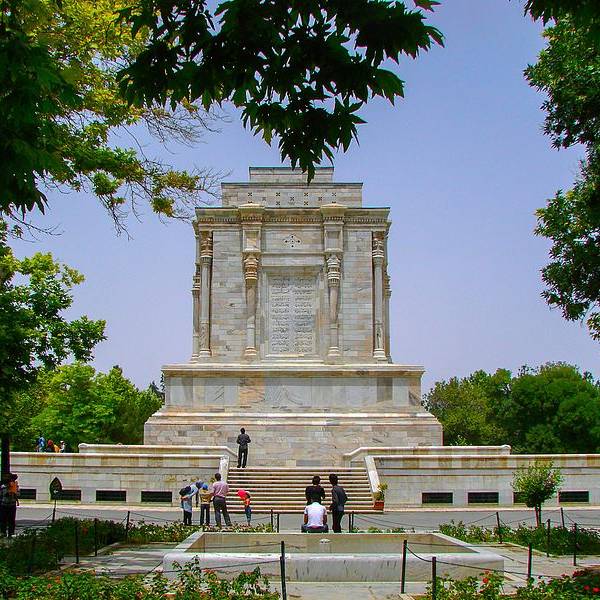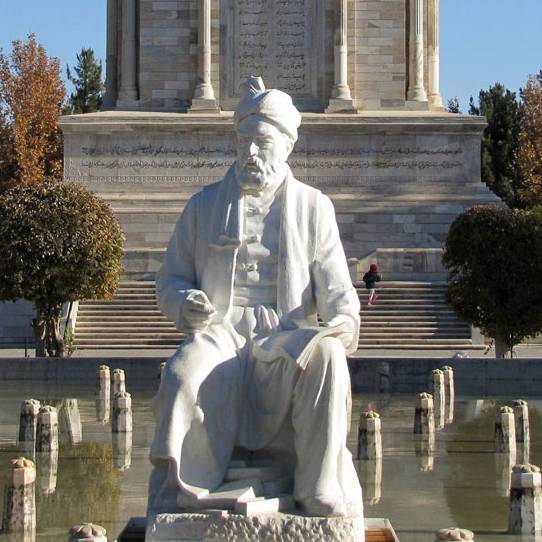Abu’l-Qasem Ferdowsi
Professor Lloyd Llewellyn-Jones Talks about Shahnameh by Ferdowsi

Synopsis
One of the most famous accounts from the Shahnameh (Book of Kings) tells the story of Sam, Zal, and the Simurgh (Phoenix). Sam is a hero and ruler of ancient Persia who has no children, but when he eventually has a son, Zal is born an albino, and his snow-white hair is considered an ill omen. His father, Sam, ashamed of the new-born’s strange appearance, orders Zal to be left in the Alborz Mountains where the mythical Simurgh finds the infant and raises him as her own. As years pass, Zal grows tall and strong, and passing caravans catch sight of him running up and down the mountain. But far away in the palace, Sam is reminded in a haunting dream how badly he has behaved towards his son. He feels remorse and sets out to the mountains to see if his son might still be alive. Sam finds Zal and asks forgiveness from his son, who is reluctant to leave the only home he has ever known. The magical bird convinces him to go with his father, and there are many celebrations to mark the reunion of Zal and his family.


